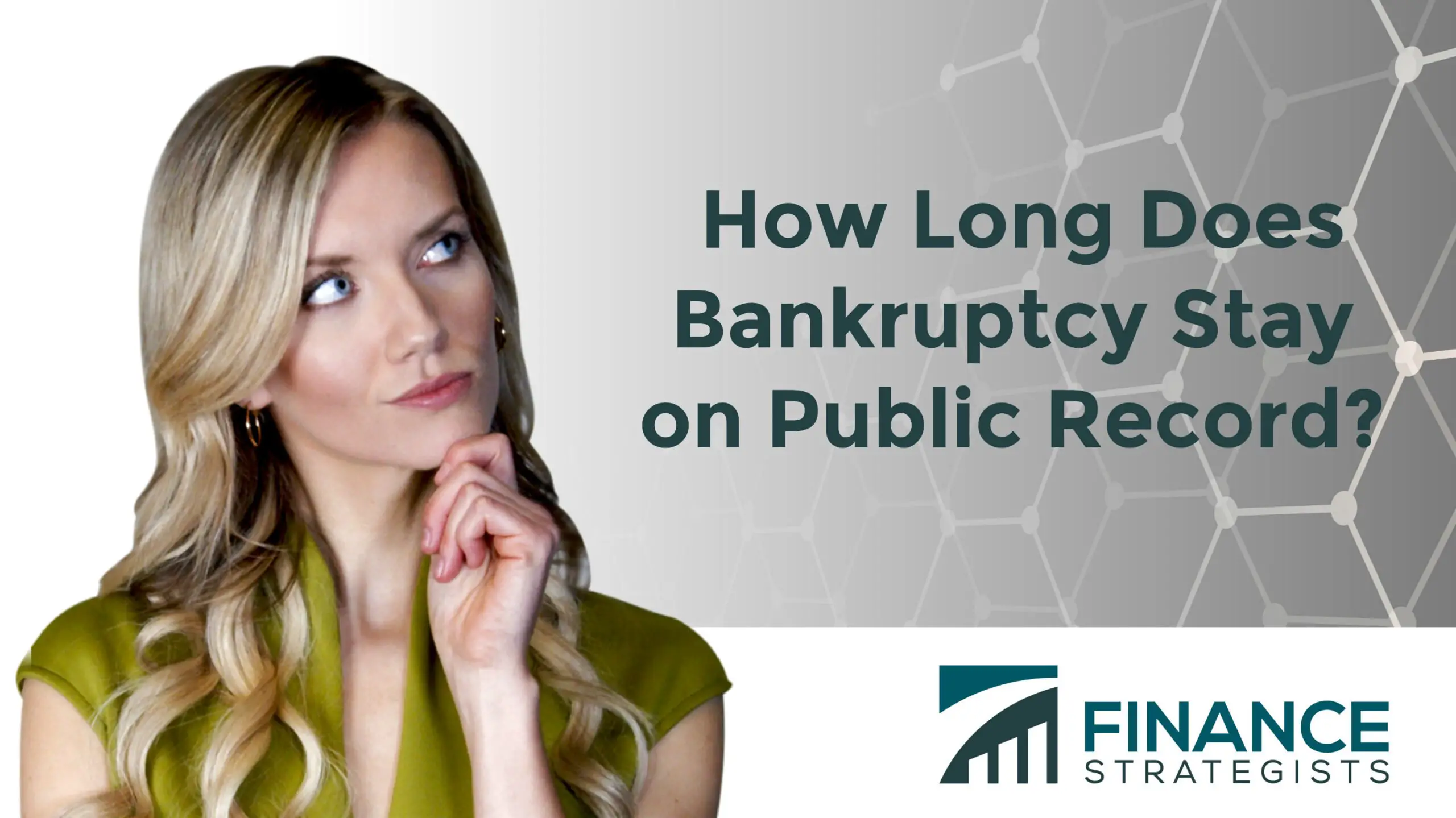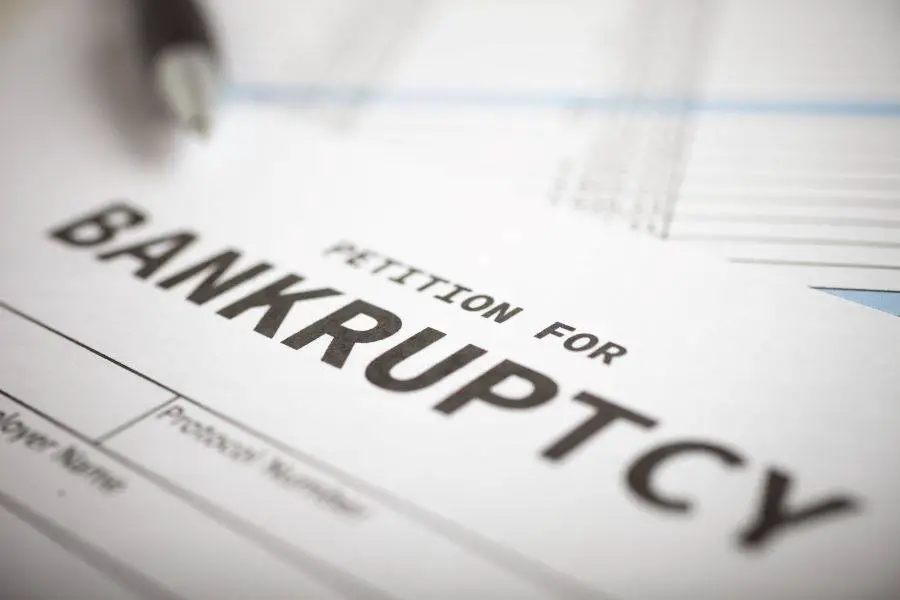Are Personal Bankruptcy Filings Public Information
- 27th May 2019
- Bankruptcy, Chapter 13 Bankruptcy, Chapter 7 Bankruptcy
Filing personal bankruptcy will be on public record but there is more you should know before making such an important decision. The prospect of filing for bankruptcy can often feel overwhelming and isolating. The Law Offices of David M. Offen help you to navigate these trying times and provide the services you need for a fresh start.
Though personal bankruptcy filings will be on public record, there is some good news: not everyone will easily be able to access your bankruptcy filing. Just because they are public does not grant the public full and easy access to your bankruptcy filings. In order to obtain information specific to your filings, a person would need to access a system known as PACER.
The PACER program requires a person to register with the system and then charges a fee for each page obtained by the user. Because it can be relatively costly, the general public typically does not register for an account and therefore does not have easy access to your filing.
PACER is used most often by bankruptcy professionals, lenders, and anyone else who may have a specific need to see the details of prior bankruptcy cases.
Public Records Arent Necessarily Gone Forever
Although the credit reporting agencies have agreed to remove certain public records from credit reports for now, that doesnt mean tax liens and judgments wont be added back to credit reports in the future. There are two reasons: Its not illegal to put them on a credit report, and the credit bureaus only agreed to remove them for a time.
How Will A Bankruptcy Impact Your Credit
Your credit report is a tool to show lenders that you have responsible financial habits, thus making you a satisfactory risk for them to lend money to on the assumption that they will be paid back. With a bankruptcy on your record, you are showing them the opposite. However, bankruptcies do happen, even to conscientious people when they are going through a financial crisis. And sometimes its the best strategy for getting out from under oppressive debt.
According to FICO,a bankruptcy will cause a bigger drop in credit score for someone with a clean credit record than someone who already had some dings. And, the more accounts that are included in the bankruptcy filing, the bigger the effect on your score.
When lenders view your credit report, its possible that they will be more forgiving of a Chapter 13 bankruptcy than a Chapter 7, because at least you made the effort to repay some of your debts.
But as long as the bankruptcy is on your credit report, it will be a factor in whether lenders want to extend you credit, and they are likely going to charge you a much-higher interest rate. However, the effect will diminish over time, so its smart to start thinking about your next steps to rebuild your credit and get back on stable financial footing.
You May Like: How Many Bankruptcies Has Donald Trump Filed
How Long Does Chapter 7 Bankruptcy Stay On Your Credit Report
Filing a chapter 7 bankruptcy can damage your credit score. But how long does chapter 7 bankruptcy stay on your credit report? Click here and find out.
You might think filing for bankruptcy means your financial life is over.
But its not.
In fact, to go bankrupt doesnt have to be a bad thing at all. It can actually be a very helpful tool for people who struggle with a large amount of debt.
That said, bankruptcy stays on your financial record for a long time.
Notice To The Creditors

When you fill out your bankruptcy petition, you will list everyone that you owe money to. The court will then notify your creditors of the filing. Some creditors may, then, attend your Meeting of the Creditors.
The Meeting of the Creditors is held between you, your bankruptcy attorney, and your creditors. At this meeting, your creditors will have a chance to interface with you in person over the details of your filing and provide any objections. This meeting can be attended by the public, though no invitations or postings are sent out.
Don’t Miss: Epiq Corporate Restructuring Llc
Your Interview With The Official Receiver
If your bankruptcy is approved, youll have an interview with the official receiver. If youve presented your own bankruptcy petition, this may happen directly after the bankruptcy order is made. Alternatively, your letter from the official receiver may invite you to an interview either in person or by telephone. If offered a telephone interview you can ask to be interviewed in person if you prefer.
If you have been made bankrupt by one of your creditors the official receiver may also contact you by telephone to find out if there is anything that needs to be sorted out urgently.
You must attend the interview and cooperate with the official receiver. If you dont, your bankruptcy could be extended beyond the normal 12 months and you could face an examination in court. The more organised you are, the more straightforward the process will be.
Before the interview, telephone the official receiver to confirm or rearrange the appointment let them know if:
- you require special facilities
- there is anything that needs to be sorted out urgently
- you need more time to gather the paperwork for the meeting
If you have been sent a questionnaire, fill it in, noting anything you dont understand .
Collect together all the paperwork you have been asked to take to the interview or have with you during the telephone call.
Face-to-face interviews may take 2 to 3 hours.
After you arrive:
Telephone interviews take at least 30 minutes.
The examiner will:
How Quickly Will My Credit Score Rise After Bankruptcy
As mentioned previously, many people will notice their credit scores plunge in the months leading up to filing bankruptcy. While discharging your debts will help give you a fresh start, you shouldnt expect to see much of a credit increase until your bankruptcy is completed.
For those that file Chapter 7, this could be within six months of your completed filing. For those filing Chapter 13, it could be longer. Again, Chapter 13 usually includes a three to five-year repayment plan so it could take longer to see an increase in your score. On the other hand, sometimes there are benefits to filing that cannot be achieved by filing for Chapter 7.
You May Like: How Do You File Bankruptcy In Oregon
Check Your Credit Report After Your Bankruptcy Discharge
Itâs important to get your free credit reports a few months after your bankruptcy discharge. You need to check to make sure that debts discharged in your bankruptcy are no longer showing. If some of these debts are still on the report as unpaid and owing, you should contact your bankruptcy attorney or a consumer attorney if you filed your own bankruptcy. This could lead to a claim under the Fair Credit Reporting Act. If you contact the credit reporting agencies to correct items on your credit report, itâs important that you use certified mail. Many credit bureau websites contain arbitration clauses in their terms of use. If you use the credit bureauâs website to dispute an issue on your credit report, you could be giving up your right to a day in court if the credit bureau doesnât fix an error on your report.
Get Yourself A Secured Credit Card
These types of credit cards are specifically designed for people with bad credit scores. They often have high annual fees and interest rates, but they give you a chance to repair your low credit score.
But there are some rules you should follow if you go this route.
Dont just take your card and start spending. You should never spend any more than 30 percent of your limit. And whatever you spend, you should pay back each month to keep you from increasing your debt.
Don’t Miss: How Many Bankruptcies Has Donald Trump Filed
Waiting For A Bankruptcy Removal From Your Credit History
Once you wait seven to 10 years, the bankruptcy public record will automatically be deleted, and future creditors won’t be able to see it.
The individual accounts that had the debts may have already been deleted during the bankruptcy discharge and bankruptcy plan phase. In some cases, these accounts must remain on the credit report.
The best thing to do is build credit while waiting for the bankruptcy record to clear, follow repayment plans, and avoid more debt.
Suspended Income Tax Payments
HMRC will apply a nil tax code when youre bankrupt. This tells your employer not to take any further income tax from your wages for the rest of the tax year . The extra money in your pay that results from this can be claimed by the trustee to form part or all of an IPA or IPO. If the IPA or IPO is wholly paid out of this extra income, it will stop when you start paying tax again.
The NT wont tell your employer youre bankrupt as an NT can be applied for a number of reasons.
Also Check: How Many Bankruptcies Has Donald Trump Filed
Applying For A Secured Credit Card
Secured credit cards require a deposit equal to your credit line so, for example, you would put down a $500 deposit and get a card that has a limit of $500. Although it doesnt feel like a credit card, this is a great way to start rebuilding your credit as they are easier to obtain since the bank has your cash as collateral. Another option is to apply for an entry-level card.
What Is A Credit Report Public Record

Categories
If you have ever taken a look at your full credit report, you will notice there is a section dedicated to public records. Public records consist of information that is on file with the government at all levels. They are accessible to everyone in the general public, hence the name public records. Not every public record related to you will appear on your credit report, only the ones that relate to your finances directly will impact your credit. To learn more about public records and how they affect your credit, keep reading.
Not sure how to read your credit report? Check out this article.
You May Like: How Many Bankruptcies Has Donald Trump Filed
How Long Does Bankruptcy Stay On Your Credit Report
A Chapter 7 bankruptcy stays on your credit report for ten years after your filing date. A Chapter 13 bankruptcy gets removed after seven years because debtors repay at least some of their debt. While the bankruptcy information remains on your credit report, anyone who pulls your credit can learn of your filing. So an employer or credit provider that doesn’t directly ask you about previous bankruptcies on your application can find out through a credit check.
How Long Will Bankruptcy Stay On My Credit Report
Typically, bankruptcy filings will stay on your credit report for an average of seven to ten years. This depends on whether you have filed Chapter 7 or Chapter 13.
If you have filed Chapter 7, it will take about ten years before it is erased from your report. Typically it takes longer than Chapter 13 because the debt was not repaid over time.
If you have filed Chapter 13 it will take about seven years.to ten years The shorter timeframe is due to the partial debt that you paid over the three to five-year payback period.
You do not need to do anything specific to remove bankruptcy from your credit score. It will be deleted automatically based on the chapter you have filed for.
Don’t Miss: How Soon After Filing Bankruptcy Can I Buy A House
When Is Bankruptcy Removed From Your Credit Report
A Chapter 7 bankruptcy can stay on your credit report for up to 10 years from the date the bankruptcy was filed, while a Chapter 13 bankruptcy will fall off your report seven years after the filing date.
After the allotted seven or 10 years, the bankruptcy will automatically fall off your credit report.
Become An Authorized User On A Credit Card
If you dont want to take out a secured credit card, you can ask a family member or friend who has good credit to add you as an on one of their credit cards. You may see an increase in your credit score if the issuer reports the cards positive payment history to the three main credit bureaus. However, your score could take a dip if the primary cardholder makes a late payment or maxes out their credit limit.
Read Also: Can You Get A Personal Loan After Bankruptcy
Improving Your Credit After A Public Record
While public records severely damage your credit score, especially when the item is first placed on your credit report, it’s not the end of the world. As the record gets older, it hurts your credit score less. Paying all your other accounts on time and keeping your debt levels low can also minimize the impact on your credit score.
How To Rebuild Credit After Bankruptcy
Accounts included in a bankruptcy filing wont be reported as unpaid or past due anymore on your credit reports. Assuming you pay new debts on time as you incur them, your credit rating will start to recover.
In the meantime, review your credit reports. Accounts that were discharged as part of your bankruptcy filing should be reported as discharged or included in bankruptcy on your credit reports. They should not show any money owed on them a balance of $0.
If there are errors in a credit report, contact the credit bureau to have the report corrected.
You can also start to rebuild your credit standing by obtaining a new credit card. You may have to resort to obtaining a secured credit card, which requires a deposit with the creditor. A third option is to have a family member or friend who has a good credit history apply for a card with you as a co-signer.
Rebuilding your credit is a gradual process. As you use a credit card and pay on time each month, other creditors will see your good financial habits on your credit report when its time to seek additional credit. It is best to avoid carrying a balance. If you must, it should not exceed 30% of the entire line of credit. You may review some tips to improve your credit score.
Read Also: Number Of Donald Trump Bankruptcies
Dont Ignore Your Debt Problems
Although tax liens and judgments might not appear on your credit reports today, there are still plenty of reasons to avoid them.
Its true you probably didnt wake up one morning and decide you were no longer going to pay your bills. Thats not the way financial and credit problems start for most people.
Still, even if youre struggling with bills you cant pay, you can avoid many tax liens and judgments simply by communicating with the agency or company to whom you owe the debt. The IRS, for example, offers payment plans for taxpayers who cant afford to pay their tax bills in full. Your creditors might be willing to settle your debt for less, as well.
One fact is clear. When youre in over your head financially, ignoring your problems isnt the answer.
Talk to your creditors or consider getting legal help or credit counseling. In extreme cases, bankruptcy might be your best option. Whatever financial challenge youre facing, youll be far better off to face it head on and deal with the consequences, rather than ignoring your problem and allowing it to grow.
How Bankruptcy Affects Your Credit

Filing for bankruptcy makes it challenging to receive credit cards or lower interest rates because lenders will consider you risky. These consequences could occur immediately, affecting any short-term needs such as getting affordable interest rates or approval from prime lenders.
Rebuilding your credit as soon as possible is paramount. One way to increase your credit score is to pay all your bills on time each month, creating and sticking to a budget and not incurring more debt.
You should also avoid overuse of credit cards and failing to pay balances in full each month. Having a good credit score gives consumers access to more types of loans and lower interest rates, which helps them pay off their debts sooner.
Read Also: How Many Times Has Donald Trump Declared Bankruptcy
Are All Bankruptcies The Same When It Comes To Credit
Myth: Bankruptcy affects the credit of all consumers who file equally, regardless of the amount of debt or the number of debts included.
The truth: Bankruptcies are far from created equal. As already stated above, some stay on your credit longer than others.
Creditors also tend to prefer to see Chapter 13 bankruptcies over Chapter 7 bankruptcies. Thats because Chapter 13 bankruptcy requires you to make some payment on your debt, so it demonstrates that you do try to pay your debts whenever possible. However, that doesnt mean Chapter 13 is the right choice for everyone and every situation.
How much debt you have and how much is included in the bankruptcy can also make an overall difference on how your credit is impacted. In short, your credit is going to suffer, but theres no single number that can be provided for how much it will drop.
How Long Does Bankruptcy Stay On Public Record
A Chapter 13 bankruptcy stays on your report for 7 years after the date of filing.
A Chapter 7 bankruptcy stays on your record for 10 years after the date of filing.
It is possible, though difficult, to remove it earlier by disputing any inaccuracies in your paperwork with the three credit bureaus .
Recommended Reading: How Many Bankruptcies Has Donald Trump